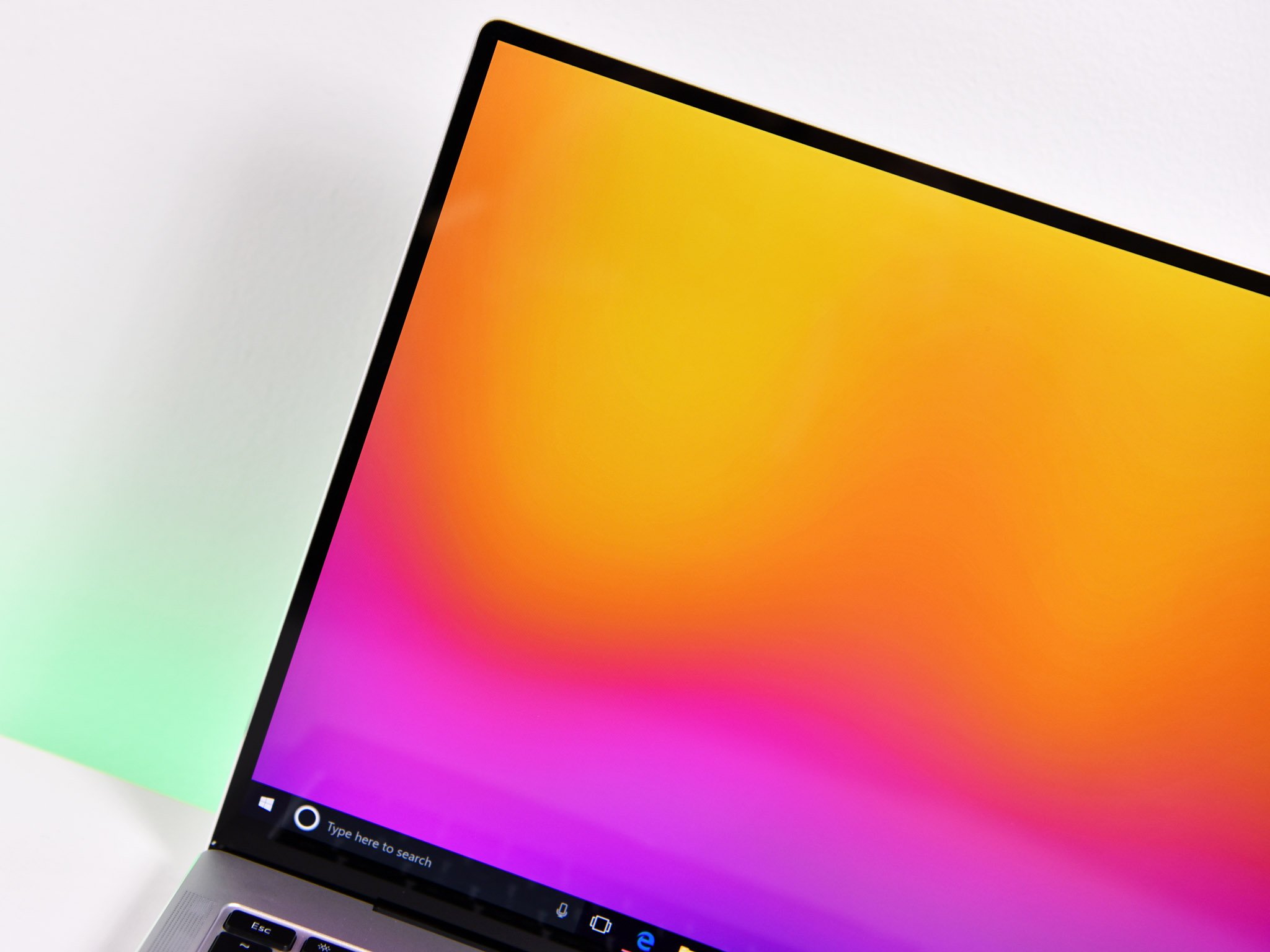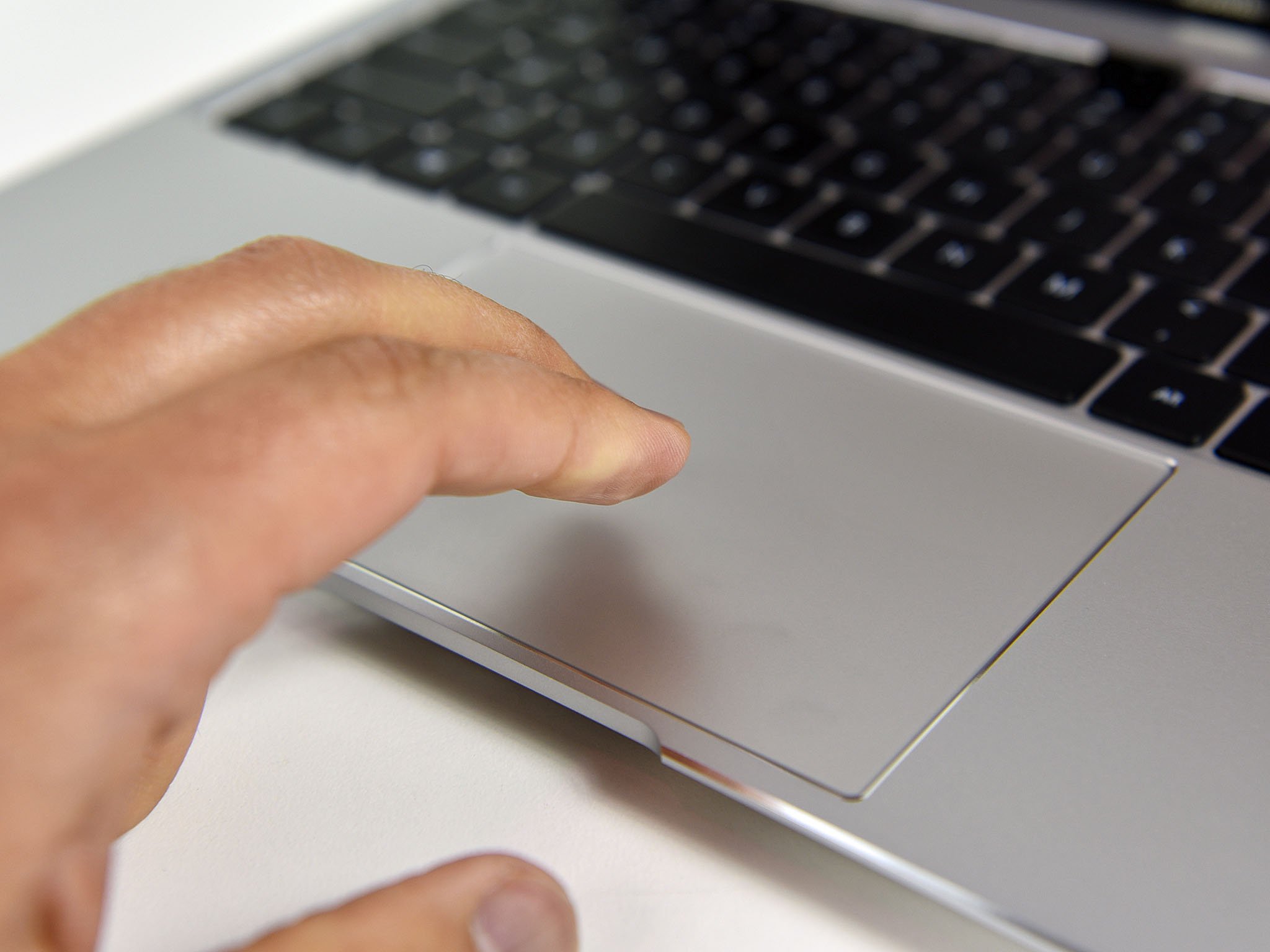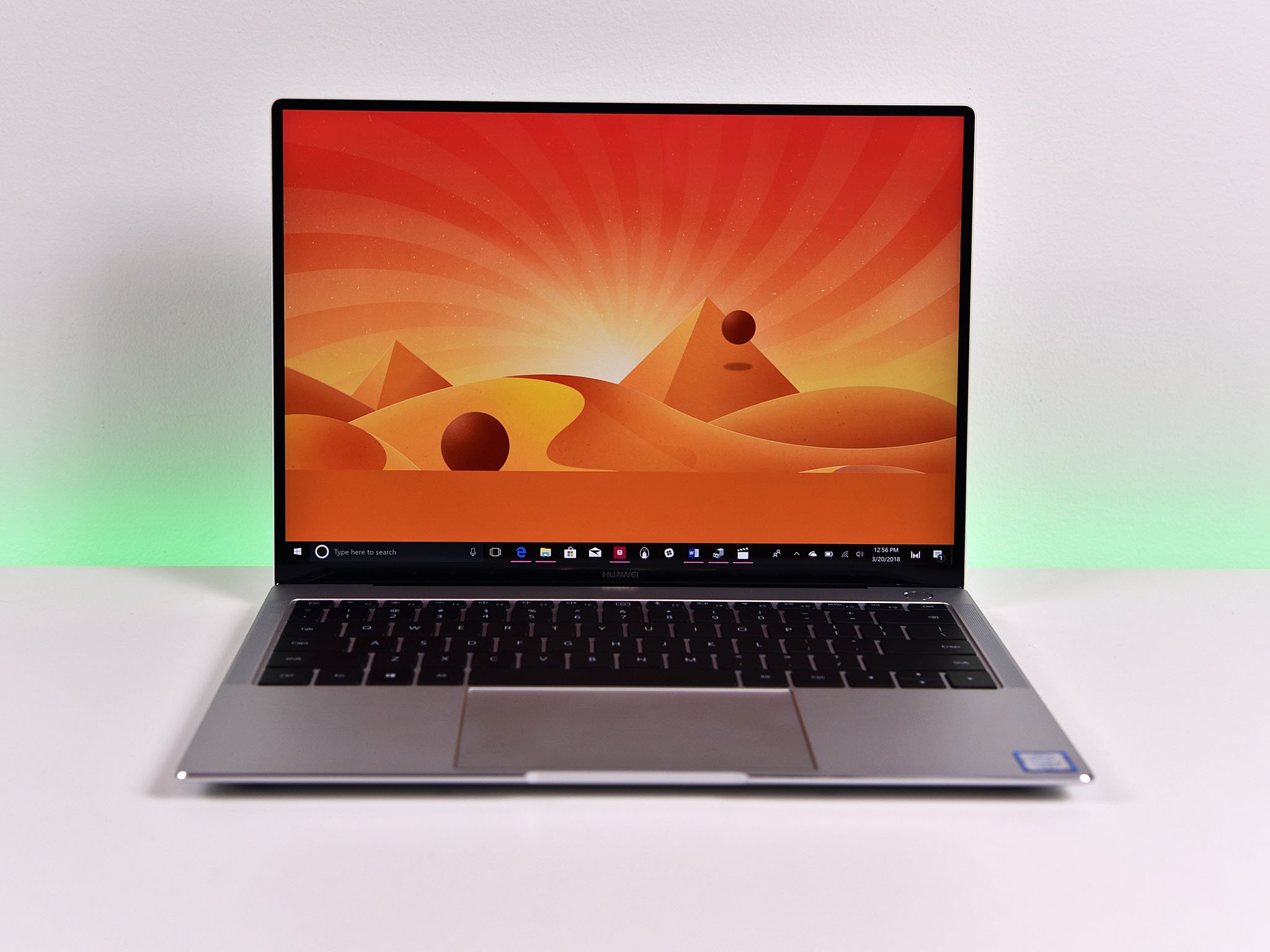
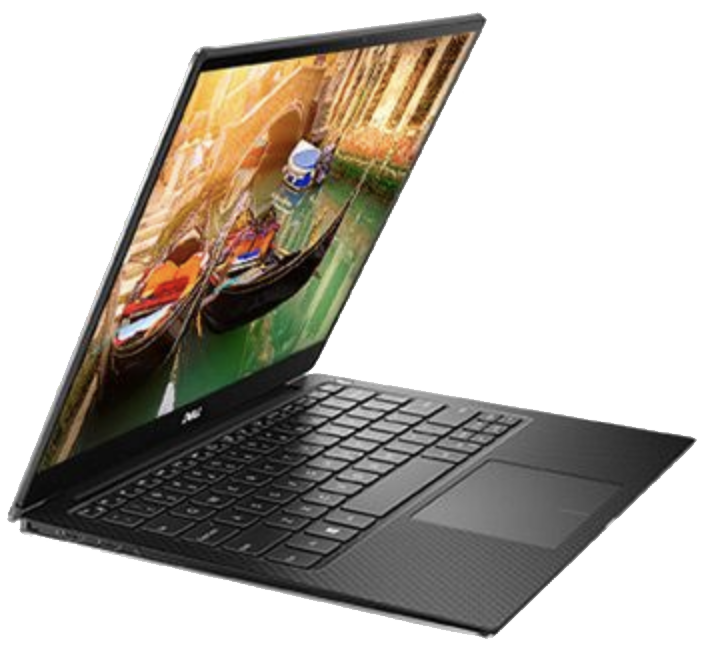
10th Gen Intel hardware
The refreshed XPS 13 (7390) includes 10th Gen Intel Core processors (CPU), Wi-Fi 6, and multiple display options. Go with FHD for better battery life, or upgrade to 4K for a truly beautiful picture. You won't get dedicated graphics, but the XPS 13 can still handle a day's productivity work with ease.
Pros
- Modern 10th Gen Intel processors
- Wi-Fi 6 connectivity
- 4K touch display option with HDR
- Better port selection
- Premium light clamshell build
Cons
- No dedicated graphics
- 16:9 aspect ratio
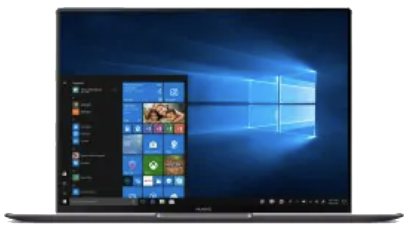
Aging but still great
The 2018 Huawei MateBook X Pro (there is a 2019 version that's hard to find) brings strong performance from 8th Gen Intel Core CPUs and dedicated NVIDIA MX150 graphics card (GPU). Its display has a boxier 3:2 aspect ratio, and it has a sleek aluminum design that's reminiscent of a MacBook.
Pros
- 3K touch display with 3:2 aspect ratio
- Dedicated NVIDIA MX150 graphics
- Huge Precision touchpad
- Sleek aluminum unibody design
- Larger 57.4Wh battery
Cons
- No Wi-Fi 6
- Using 8th Gen Intel hardware
- Odd camera placement
These two laptops have a similar starting price, and they should both make great daily drivers for anyone who needs a device to handle office and productivity work. The dedicated GPU in the MateBook X Pro will deliver better performance for games and some light specialized work — like editing — but 10th Gen Intel hardware in the XPS 13 is not far behind. Here's a look at the exact specs you can find in each laptop.
Dell XPS 13 (7390) vs. Huawei MateBook X Pro Tech specs
| Header Cell - Column 0 | XPS 13 (7390) | MateBook X Pro |
|---|---|---|
| Processor | 10th Gen Intel Core i3-10110U Intel Core i5-10210U Intel Core i7-10710U | 8th Gen Intel Core i5-8250U Intel Core i7-8550U |
| RAM | 4GB, 8GB, 16GB LPDDR3 | 8GB, 16GB LPDDR3 |
| Storage | 256GB, 512GB, 1TB, 2TB M.2 PCIe SSD | 256GB, 512GB M.2 PCIe SSD |
| Display size | 13.3 inches | 13.9 inches |
| Display resolution | 1920x1080 non-touch or touch 3840x2160 touch | 3000x2000 touch |
| Aspect ratio | 16:9 | 3:2 |
| Graphics | Intel UHD Graphics | NVIDIA MX150 (2GB VRAM) |
| Ports | Two Thunderbolt 3 USB-C 3.1 microSD card reader 3.5mm audio | Thunderbolt 3 USB-C USB-A 3.0 3.5mm audio |
| Biometrics | Fingerprint reader | Fingerprint reader |
| Wireless | 802.11ax (Wi-Fi 6) Bluetooth 5.0 | 802.11ac (Wi-Fi 5) Bluetooth 4.1 |
| Battery | 52Wh | 57.4Wh |
| Dimensions | 11.9 x 7.8 x 0.3 - 0.46 inches (302mm x 199mm x 7.8 - 11.6mm) | 11.97 x 8.54 x 0.57 inches (304mm x 217mm x 14.6mm) |
| Weight | From 2.7 pounds (1.23kg) | From 2.9 pounds (1.3kg) |
Design and features
Dell's XPS 13 (7390) has a smart design that builds on the previous generations, with a platinum silver exterior and black carbon fiber interior. The MateBook X Pro is all silver aluminum, and if you're a fan of the MacBook look, it's likely a better choice for you. The XPS 13 is slightly lighter and thinner than the MateBook X Pro, so keep that in mind if you're often on the move. Neither laptop is a convertible, meaning it's used only as a clamshell notebook. If you're interested in something that can double as a tablet, check out the XPS 13 2-in-1.
The MateBook X Pro's speakers run along the sides of the comfortable keyboard, delivering full, clear audio that's unmuffled when sitting on your lap. Below the keyboard is an enormous Precision touchpad that makes it easy to forget about an external mouse. The XPS 13 isn't far behind with its Precision touchpad, though it won't match up in terms of size.
The XPS 13 has a better selection of ports, including two Thunderbolt 3, one USB-C, a microSD card reader, and a 3.5mm audio jack. You shouldn't have issues connecting modern accessories to either laptop, though you can invest in a docking station to expand connectivity. The MateBook X Pro includes one Thunderbolt 3, USB-C, USB-A, and a 3.5mm audio jack.
A fingerprint reader is built into the MateBook X Pro's power button, and though there's no IR camera for Windows Hello, the MateBook X Pro's webcam is hidden beneath a button in the F-row of the keyboard. It's a neat design, but it offers an angle that looks up your nose. Whereas the XPS 13's camera used to be situated below the display, it's been moved back along the top bezel. For added security, the XPS 13 also includes a fingerprint reader in the power button.
Display
These two laptops really set themselves apart when it comes down to the display. The MateBook X Pro has a 3:2 aspect ratio for its 13.9-inch touchscreen, which puts it in between the two most common aspect ratios for media (4:3 and 16:9). If you like the look of Microsoft's Surface devices, you'll no doubt appreciate what Huawei has done.
Aside from the aspect ratio, you're getting a beautiful 3000x2000 resolution and a 100% sRGB color gamut, all packed into something with almost no bezel or chin. It's a touchscreen, but there's not a lot of gloss and there's also no pen support.
All the latest news, reviews, and guides for Windows and Xbox diehards.
The XPS 13's display is no slouch either, though it's configured for the more common 16:9 aspect ratio. You're getting the 13.3-inch screen in either touch or non-touch, and you can choose between 1080p and 4K, each with perfect sRGB color reproduction. Like the MateBook X Pro, the XPS 13 doesn't offer active pen support. Bezel is slim for a modern look.
You're going to get a knockout display in either laptop, and the big decision will likely come down to whether or not you want to go with a 3:2 or 16:9 aspect ratio.
Performance and price
The XPS 13 (7390) made the jump to 10th Gen Intel Core CPU options for improved performance, but it's still lacking a dedicated GPU. If you need superior graphics performance, the NVIDIA MX150 GPU in the MateBook X Pro will be an enormous boon. Intel UHD integrated graphics in the XPS 13 are still going to deliver excellent performance, but you will see a difference when gaming or getting into specialized work. The MateBook X Pro is still using 8th Gen Intel Core i5 and Core i7 CPUs. They're still powerful, but come in below 10th Gen options.
The MateBook X Pro can get about 10 hours from a single battery charge with the display brightness auto-adjusting, and even under a heavy load, the fans stay relatively quiet. The XPS 13 should achieve nearly the same battery life, and it also runs quiet. If you want the fastest wireless internet possible, Wi-Fi 6 connectivity in the XPS 13 will easily beat out Wi-Fi 5 in the MateBook X Pro (although Wi-Fi 6 isn't as readily available yet).
An XPS 13 with 10th Gen Intel Core i3-1011U CPU, 4GB of RAM, 256GB SSD, and FHD non-touch display starts at about $950, while you can get your hands on a MateBook X Pro with Intel Core i5-8250U CPU, 8GB of RAM, 256GB SSD, NVIDIA MX150 GPU, and 3K touch display for about $1,022. That's an excellent price for what you're getting, though you're not going to have the latest hardware.
The MateBook X Pro's most recent version released in 2019, with NVIDIA MX250 GPU and 8th Gen Intel "Whiskey Lake" CPUs, is not readily available outside of specific markets, so you'll most likely be looking at the 2018 model. Supply is dwindling on these older models, and the Intel Core i7 model makes a huge jump up to about $,1900 new. However, it can be had for about $1,129 if you don't mind a "like new" used version.
The XPS 13 brings latest Intel hardware, plenty of configurations
As long a you're not set on a display with 3:2 aspect ratio and don't mind the lack of dedicated GPU, the XPS 13 (7390) should make a great choice. It starts at a lower cost and there are a ton of configurations available, including up to a 4K touch display. It brings better port selection, speedier Wi-Fi 6, and 10th Gen Intel CPU options for an altogether stellar package.
Get the MateBook X Pro for the 3:2 display, dedicated GPU
The Huawei MateBook X Pro doesn't offer hardware as modern as you'll find in the XPS 13, but its 3K display with 3:2 aspect ratio and dedicated NVIDIA MX150 GPU is an amazing combination.

Cale Hunt brings to Windows Central more than nine years of experience writing about laptops, PCs, accessories, games, and beyond. If it runs Windows or in some way complements the hardware, there’s a good chance he knows about it, has written about it, or is already busy testing it.

